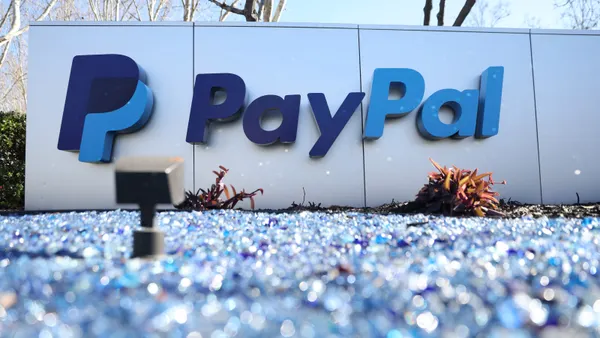Dive Brief:
- The U.S. arm of the British money transfer firm Wise has agreed to pay $4.2 million and invest in further compliance systems as part of an agreement Wednesday with six states that uncovered deficiencies in how the company addressed certain compliance requirements.
- As part of the agreement, Wise US will bolster investments in its anti-money laundering and terrorism financing programs, and file quarterly reports to the states for two years, according to the consent order posted on the state of Massachusetts website. Regulators in that state, as well as California, Minnesota, Nebraska, New York and Texas brought the administrative action, with each state to receive $700,000 under terms of the order.
- “Wise takes its responsibility to provide a safe and secure service to our customers very seriously,” a company spokesperson said Wednesday in an email. “We continue to invest heavily in our compliance and controls framework to help ensure we deliver a safe, reliable and seamless customer experience.”
Dive Insight
The states discovered compliance weaknesses last year during their examination of Wise’s operations from July 2022 to September 2023. Wise US is the New York-based U.S. subsidiary of Wise Plc, the London-based fintech at which co-founder Kristo Käärmann is CEO.
As part of the pact, Wise US will retain an independent monitor to verify its compliance effort. Wise US, which is led by U.S. President Harsh Sinha, did not admit nor deny the state regulators’ findings as part of the multi-state consent order.
“State regulators found Wise was not in compliance with certain requirements, creating the potential that its services could be used to support money laundering, terrorism financing, or other illegal activities,” the Texas Department of Banking said Wednesday in a press release.
According to the consent order, Wise’s compliance violations included a failure to provide for independent review of its AML program “on a frequency commensurate with services provided” and “deficiencies with processes for investigating and reporting suspicious activity.”
“Results like this illustrate the power of collaboration and consistency,” Mary L. Gallagher, commissioner of the Massachusetts Division of Banks, said in a Wednesday press release. “This week’s action is an example of state regulators acting quickly to ensure compliance and protect consumers by coordinating a multi-state enforcement action.”
Financial services firms must verify customers’ identities, report suspicious activity and apply “appropriate controls for high-risk accounts,” the Massachusetts banking regulator said in the press release.
In January, Oakland, California-based Block agreed to pay more than $250 million over similar compliance deficiencies with its CashApp peer-to-peer payments tool in a settlement with 48 states and the Consumer Financial Protection Bureau. Three months later, Block reached a separate agreement with New York regulators, paying $40 million over the same violations.
A multi-state examination of CashApp operations from 2021 to 2022 found that its compliance controls did not satisfy regulations under the Bank Secrecy Act and related anti-money laundering measures.














